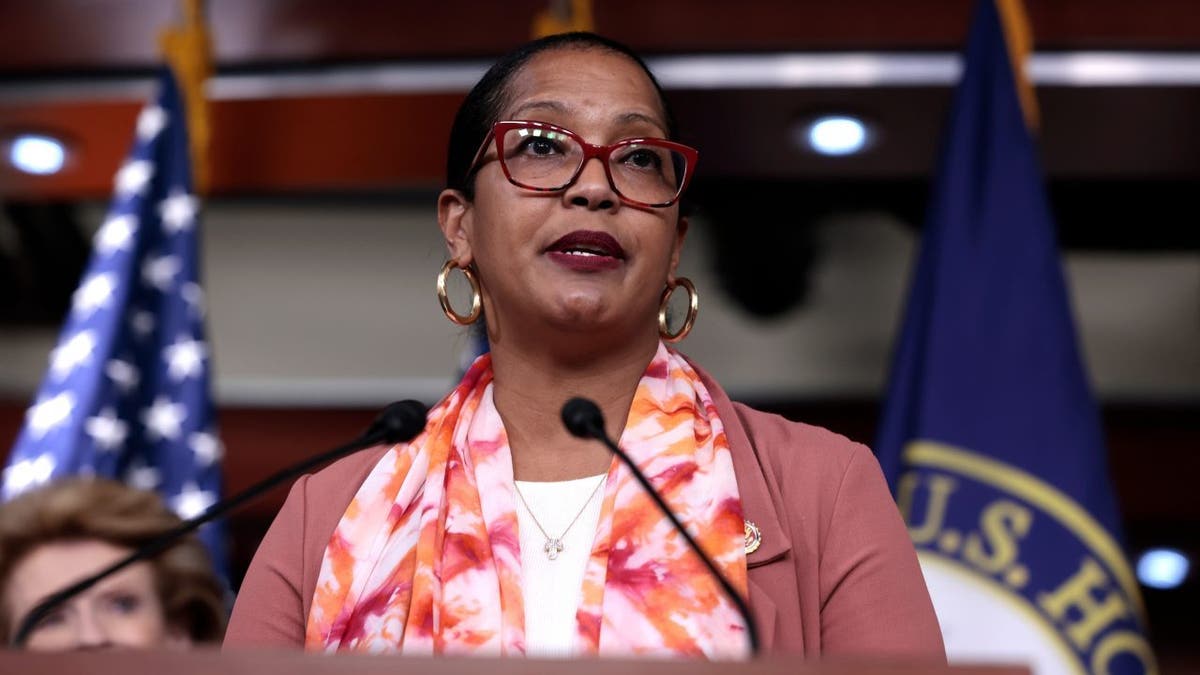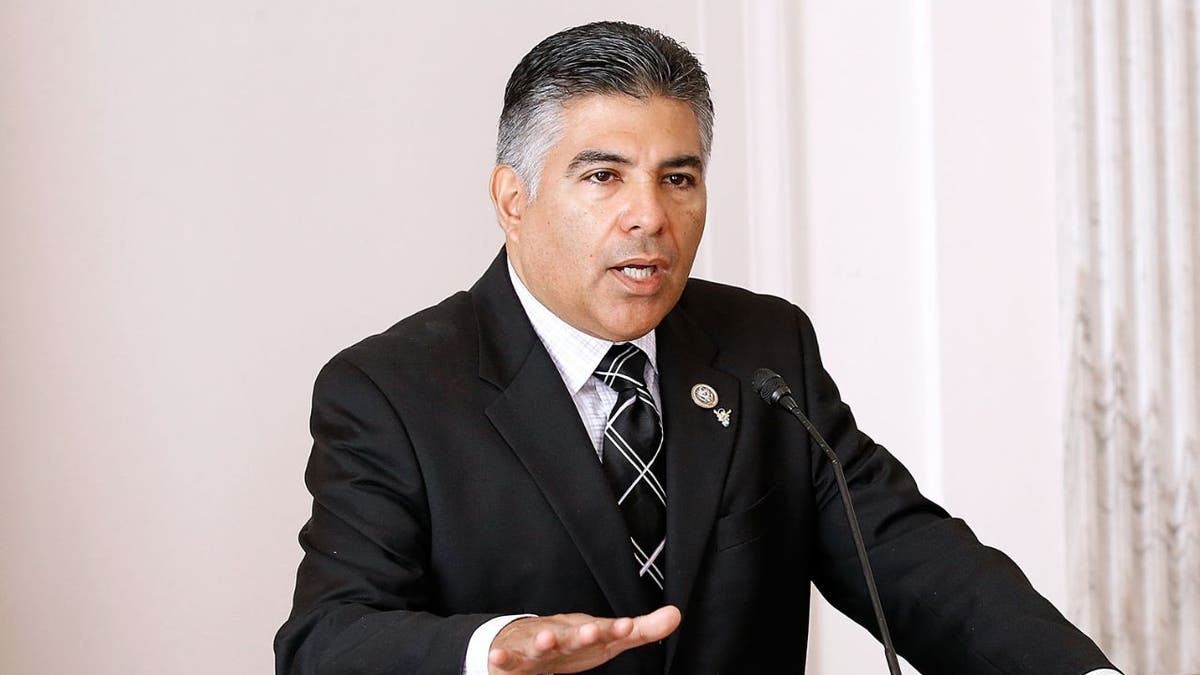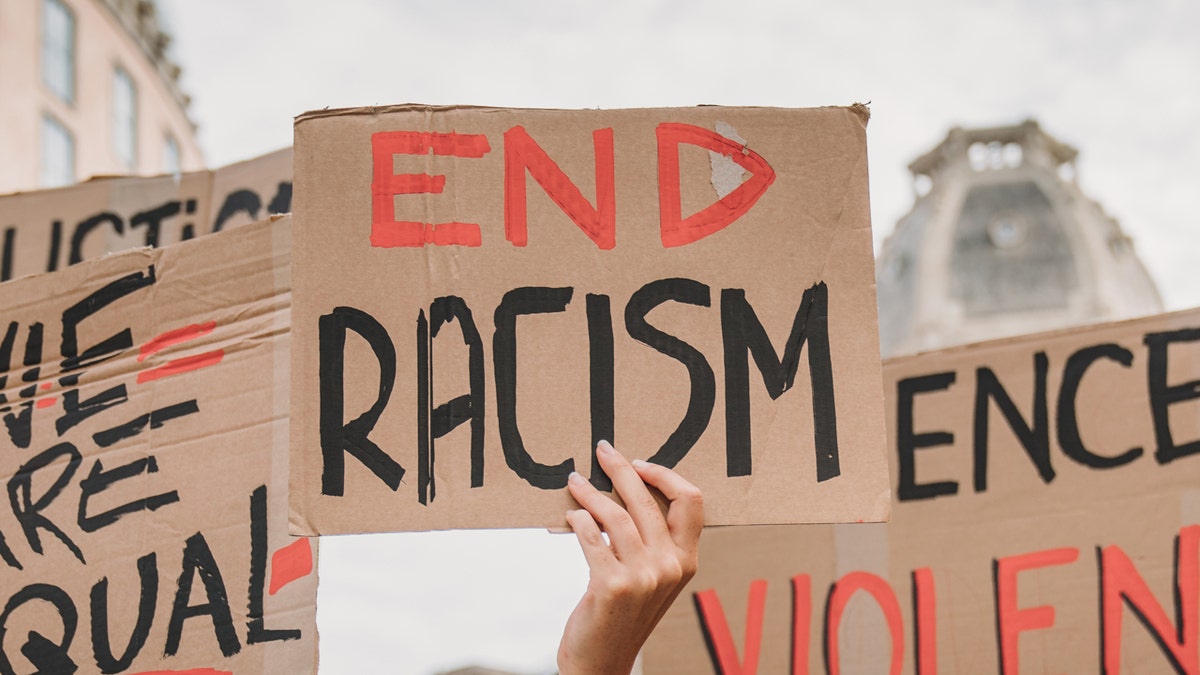California university tells students to report professors for racism if they aren't called on
Campus Reform correspondents Courtney McLain, Emily Sturge, and Darryl Boyer joined 'Fox & Friends Weekend' to discuss the impact of 'woke' policies in the classroom.
Two House Democrats introduced a resolution this week that declares racism as a public health crisis and calls on Congress to dismantle "systemic practices and policies that perpetuate racism in the United States."
The resolution from Reps. Jahana Hayes, D-Conn., and Tony Cardenas, D-Calif., makes a series of findings that say the U.S. has a "longstanding history and legacy of racism" against people of color, and that the effects of slavery in particular are still forcing Black Americans to "face the ramifications of systemic racism through unjust and discriminatory structures and policies."
The measure argues that this legacy continues to affect the health and well-being of people of color today and concludes that the U.S. health care system is one of many economic and social structures in America that is still "fraught with racism and racial, ethnic, sex (including sexual orientation and gender identify), and class biases that lead to health inequity and health disparities."

Rep. Jahana Hayes, D-Conn., proposed a resolution that declares racism is a public health crisis in America. (Photo by Anna Moneymaker/Getty Images) (Photo by Anna Moneymaker/Getty Images)
"Life expectancy rates for Black and Native American people in the United States are significantly lower than those of White people in the United States," it finds. "Disparities in health outcomes are exacerbated for LGBTQIA+ people of color… disparities in health outcomes are worsened for people of color with disabilities due to bias and inequitable access to health care."
It argues that White children are far less likely to be uninsured than others, that immigrants of color are discouraged from signing up for public health benefits because they might be targeted for deportation, and that Black Americans have a history of being subjected to "unethical practices and abuses," such as the Tuskegee Syphilis study.
The resolution charges that women and children of color are also especially vulnerable to ongoing disparities in the U.S. health care system.
"Black and Native American women are 2 to 4 times more likely than White women to suffer severe maternal morbidity or die of pregnancy-related complications, and implicit racial biases and lower quality care are contributing factors to the health care disparities that lead to these outcomes," it said. "Black and Native American infants are twice as likely to die as White infants, and the Black infant mortality rate in the United States is higher than in 97 countries worldwide.
RACISM RAISES ALZHEIMER'S RISK FOR NON-WHITE AMERICANS, HHS CLAIMS IN NEW REPORT

Rep. Tony Cardenas, D-Calif., cosponsored the measure, which says racism continues to cause disparate health effects for people of color. ((Photo by Paul Morigi/Getty Images))
Aside from the prevalence of systemic racism in the U.S. health system, the resolution charges that racism in the country is having a health impact on people of color.
"Racism and segregation in the United States contribute to poor health outcomes by segregating Black, Latino, and Native-American communities from opportunity," it said. "Social inequities such as differing access to quality health care, healthy food and safe drinking water, safe neighborhoods, education, job security, and reliable transportation affect health risks and outcomes."
"Because of racial and ethnic disparities, people of color are more likely to have preexisting, preventable, and chronic conditions, which lead to higher COVID–19 morbidity and mortality rates," it added.
The resolution states that declaring racism as a public health crisis is necessary to create momentum for government action to deal with the crisis. It would "alert[s] the Nation to the need to enact immediate and effective cross-governmental efforts to address the root causes of institutional racism and their downstream impacts."

State and local governments around the country have already declared racism to be a public health crisis. (iStock)
If passed, the measure also holds that Congress will work to address "years of neglectful and apathetic policies" that have hurt health outcomes for people of color."
CLICK HERE TO GET THE FOX NEWS APP
Michigan, Nevada and Wisconsin have declared racism a public health crisis, along with dozens of cities and counties around the country, and Hayes said a congressional declaration is the logical next step.
"Congress must address the barriers created by overt racism or unconscious bias in our health care system and actively work to dismantle these injustices," Hayes said Tuesday. "Declaring racism a public health crisis is a step towards delivering a more equitable and healthier future for all."















































